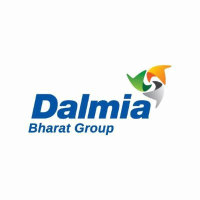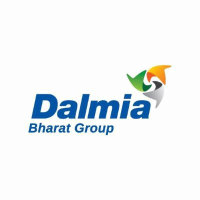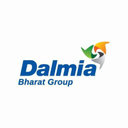
Dalmia Bharat Ltd
NSE:DALBHARAT


| US |

|
Johnson & Johnson
NYSE:JNJ
|
Pharmaceuticals
|
| US |

|
Berkshire Hathaway Inc
NYSE:BRK.A
|
Financial Services
|
| US |

|
Bank of America Corp
NYSE:BAC
|
Banking
|
| US |

|
Mastercard Inc
NYSE:MA
|
Technology
|
| US |

|
UnitedHealth Group Inc
NYSE:UNH
|
Health Care
|
| US |

|
Exxon Mobil Corp
NYSE:XOM
|
Energy
|
| US |

|
Pfizer Inc
NYSE:PFE
|
Pharmaceuticals
|
| US |

|
Palantir Technologies Inc
NYSE:PLTR
|
Technology
|
| US |

|
Nike Inc
NYSE:NKE
|
Textiles, Apparel & Luxury Goods
|
| US |

|
Visa Inc
NYSE:V
|
Technology
|
| CN |

|
Alibaba Group Holding Ltd
NYSE:BABA
|
Retail
|
| US |

|
3M Co
NYSE:MMM
|
Industrial Conglomerates
|
| US |

|
JPMorgan Chase & Co
NYSE:JPM
|
Banking
|
| US |

|
Coca-Cola Co
NYSE:KO
|
Beverages
|
| US |

|
Walmart Inc
NYSE:WMT
|
Retail
|
| US |

|
Verizon Communications Inc
NYSE:VZ
|
Telecommunication
|
Utilize notes to systematically review your investment decisions. By reflecting on past outcomes, you can discern effective strategies and identify those that underperformed. This continuous feedback loop enables you to adapt and refine your approach, optimizing for future success.
Each note serves as a learning point, offering insights into your decision-making processes. Over time, you'll accumulate a personalized database of knowledge, enhancing your ability to make informed decisions quickly and effectively.
With a comprehensive record of your investment history at your fingertips, you can compare current opportunities against past experiences. This not only bolsters your confidence but also ensures that each decision is grounded in a well-documented rationale.
Do you really want to delete this note?
This action cannot be undone.

| 52 Week Range |
1 686.35
2 390.7
|
| Price Target |
|
We'll email you a reminder when the closing price reaches INR.
Choose the stock you wish to monitor with a price alert.

|
Johnson & Johnson
NYSE:JNJ
|
US |

|
Berkshire Hathaway Inc
NYSE:BRK.A
|
US |

|
Bank of America Corp
NYSE:BAC
|
US |

|
Mastercard Inc
NYSE:MA
|
US |

|
UnitedHealth Group Inc
NYSE:UNH
|
US |

|
Exxon Mobil Corp
NYSE:XOM
|
US |

|
Pfizer Inc
NYSE:PFE
|
US |

|
Palantir Technologies Inc
NYSE:PLTR
|
US |

|
Nike Inc
NYSE:NKE
|
US |

|
Visa Inc
NYSE:V
|
US |

|
Alibaba Group Holding Ltd
NYSE:BABA
|
CN |

|
3M Co
NYSE:MMM
|
US |

|
JPMorgan Chase & Co
NYSE:JPM
|
US |

|
Coca-Cola Co
NYSE:KO
|
US |

|
Walmart Inc
NYSE:WMT
|
US |

|
Verizon Communications Inc
NYSE:VZ
|
US |
This alert will be permanently deleted.
 Dalmia Bharat Ltd
Dalmia Bharat Ltd
Dalmia Bharat Ltd
Investor Relations
Dalmia Bharat Ltd., a stalwart in the Indian industrial landscape, has carved a distinguished path since its inception in the early 20th century. Initially rooted in the realms of cement production, the company has expanded its footprint across multiple segments of the infrastructure sector. As a significant player in the cement industry, Dalmia Bharat has developed a comprehensive portfolio that caters to diverse construction requirements. The company's manufacturing facilities, equipped with cutting-edge technology, enable efficient production processes that capitalize on both cost-management and innovation. It strives to maintain a delicate balance between sustainability and scalability, utilizing alternative fuels and raw materials to reduce its carbon footprint while ensuring robust growth metrics.
The essence of Dalmia Bharat’s revenue model lies in its extensive distribution network and a diversified product range, which includes specialized cement types designed for different construction needs. By leveraging an extensive reach across both urban and rural markets, the company ensures consistent demand and captures a significant share of the market. Additionally, Dalmia Bharat augments its profitability through strategic partnerships and an unwavering focus on customer satisfaction, engendering brand loyalty and encouraging repeat business. With a firm commitment to excellence and innovation, coupled with a strategic expansion into emerging markets, Dalmia Bharat continues to ascend as a formidable force in the infrastructure industry, blending traditional expertise with modern efficiencies to sustain its market leadership.

Dalmia Bharat Ltd., a stalwart in the Indian industrial landscape, has carved a distinguished path since its inception in the early 20th century. Initially rooted in the realms of cement production, the company has expanded its footprint across multiple segments of the infrastructure sector. As a significant player in the cement industry, Dalmia Bharat has developed a comprehensive portfolio that caters to diverse construction requirements. The company's manufacturing facilities, equipped with cutting-edge technology, enable efficient production processes that capitalize on both cost-management and innovation. It strives to maintain a delicate balance between sustainability and scalability, utilizing alternative fuels and raw materials to reduce its carbon footprint while ensuring robust growth metrics.
The essence of Dalmia Bharat’s revenue model lies in its extensive distribution network and a diversified product range, which includes specialized cement types designed for different construction needs. By leveraging an extensive reach across both urban and rural markets, the company ensures consistent demand and captures a significant share of the market. Additionally, Dalmia Bharat augments its profitability through strategic partnerships and an unwavering focus on customer satisfaction, engendering brand loyalty and encouraging repeat business. With a firm commitment to excellence and innovation, coupled with a strategic expansion into emerging markets, Dalmia Bharat continues to ascend as a formidable force in the infrastructure industry, blending traditional expertise with modern efficiencies to sustain its market leadership.





























 You don't have any saved screeners yet
You don't have any saved screeners yet
